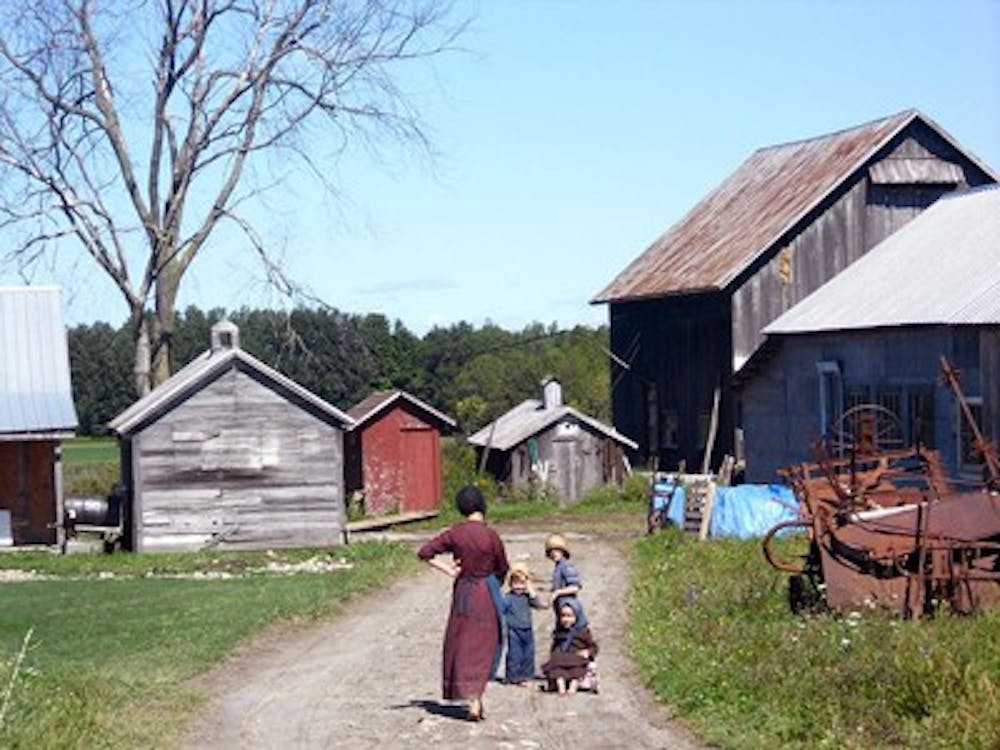By Stephen Weick | Echo
Last week's article "Eight Years, That's All You Get" does demonstrate one point: intercultural analysis is often more complicated than first meets the prosaic eye.
The 1972 decision by the Supreme Court to allow the Amish community to retain their religious freedom with concern to education is not bowing to a backward conservatism, but is a rare example of governmental respect for true autonomy that rejects the contemporary mode of life. The Amish possess an understanding of how life ought to be lived that has stood the test of time for 300 years. Present age opinion on the right manner of raising children has not, and should not, be treated as obviously superior.
First of all, the manner in which the Amish command their children to conform to their way of life is not very different from the manner in which most parents shape their children's lives, in one way or another. In general, this molding of the child is not condemned, but recognized as necessary. Indeed, the sporting ambitions of many a child are routinely crushed by the reality of parental guidance. This guidance is not to be dismantled simply because it is not majoritarian. For example, most homeschoolers often cannot reach new athletic heights because they aren't enrolled in the more competitive high school leagues because their parents have chosen to keep them at home for religious reasons. Should the government step in to force these families to conform to values "in sharp conflict to their fundamental mode of life?" I think not, if only for the reason that forced assimilation into a society contrary to one's religious convictions is wrong.
Second, learning is not something that ends when formal education stops. The Amish who complete their formal education in the eighth grade have by no means simply traded learning for endless labor. Amish children have the opportunity for individual learning (as the Supreme Court noted), just learning of a different type than found in public schools-their less-formal education (only two to four years less, mind you) is not detrimental to their quality of life. The Supreme Court rightly recognized that meaningful contribution to society is not contingent on these several years of formal education.
Third, Amish children are not stuck in some backward society with no hopes or dreams-their culture has the courage of its convictions to foster different hopes and dreams (notably ones that have value once one steps off a hardwood court). Even from a purely practical standpoint, it is nonsense to imply that Amish society is systematically placing children at a disadvantage or abusing their dreams. Amish society not only allows its children to choose their life path at age 18 (like most everyone else), but their upbringing actually provides them with practical vocational skills in addition to education, which have shown to be quite helpful to society.
One could make the argument that schooling mixed with vocational training and labor is a more advanced system of raising human beings, as it affords diverse opportunity in adulthood. As noted in Wisconsin v. Yoder, the Amish are a highly successful and productive unit of society. The notion that Amish culture is aimless is absurd, and demonstrates a lack of understanding.
Those who have chosen to remain within the Amish community and raise their children there are not practicing an aimless lifestyle, but rather one that emphasizes goals other than those of the outside world (I consider that a noble aim). This is actually what the Supreme Court recognized in 1972.
"The high school tends to emphasize intellectual and scientific accomplishments, self-distinction . . . worldly success," stated the Supreme Court. "Amish society emphasizes informal 'learning through doing'; a life of 'goodness', rather than intellect . . . community welfare rather than competition, and separation from, rather than integration with, contemporary worldly society."
By recognizing the right of the Amish to direct their children's religious upbringing, the Supreme Court was recognizing their right not to be assimilated into a contrary culture-a freedom that is a fundamental concern of American society.
Finally, the Amish's "aimless cycle of work, marriage and raising children" (a grotesque caricature so ambiguous it seems readily applicable to any society one wishes to discredit) appears to stand up well as a Biblical standard of living (certainly so in juxtaposition to modern society). An argument is to be made that this culture is, in fact, one of the last to truly seek Christian ideals of community; these being things like simplicity, communal living, interdependency and virtuous autonomy from a decadent and consumeristic society. Certainly the Amish system is flawed (all systems are), but an emotional rejection of it (even just concerning education) is, as stated well in Wisconsin v. Yoder, "neither fair nor correct."(Thumbnail photograph courtesy of ilamont.com. Used with permission.)





